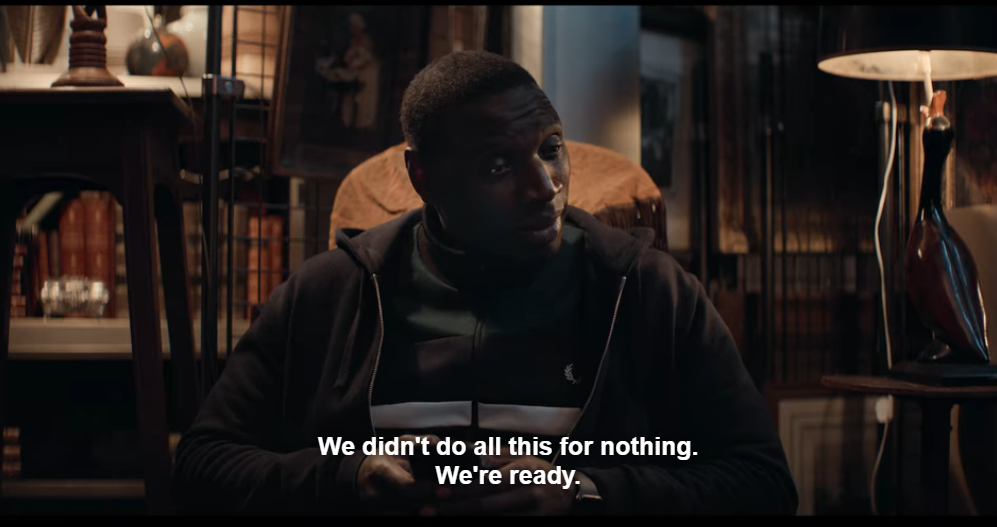TV Review: Lupin: Dans l’Ombre d’Arsene Part 2
Quick recap: Assane Diop (Omar Sy), a Senegalese immigrant to France, believes his father Babakar (Fargass Assande) was framed by his employer Hubert Pellegrini (Herve Pierre) for the theft of the fabulous Queen’s Necklace. Taking inspiration from Maurice LeBlanc’s tales of Arsene Lupin, Assane has fashioned himself into a modern gentleman thief, and is now trying to prove M. Pellegrini’s crimes. Things took a turn for the disastrous when one of the archvillain’s henchmen kidnapped Assane’s son Raoul (Etan Simon).

That wasn’t meant to be quite as much of a cliffhanger as it turned out to be due to production having to break in the middle because of the pandemic. (This series takes place in an alternate 2020 where COVID-19 never happened.)
The action picks up with police officer Youssef Guedira (Soufiane Guerrab) helping Assane track down the abducted boy. Assane is grateful for the assist, honest, and nicknames Youssef “Ganimard” after the one incorruptible cop who almost catches Lupin time after time, but also doesn’t trust him. (Understandably so as he knows Officer Guedira’s boss is owned by Pellegrini.) So he tricks the policeman, and the ramifications of that make things even worse down the road.
Now that Pellegrini understands more of the true nature of Assane’s threat, he can more forcefully use his wealth and power to strip the thief of his resources and options, turning the whole of Paris against our protagonist. But Assane’s plans have been laid up for years, some parts dating back decades, and just when you think the wolf is cornered….
The flashbacks to Assane’s youth continue, either showing the origin of a trick he uses in the present, or explaining some of the characters’ relationships. There’s also more development of the secondary characters, such as Assane’s lover (and mother of Raoul) Claire (Ludivine Sagnier). She still loves him, but Assane’s dangerous lifestyle keeps them apart and threatens Raoul.
The references to the original Arsene Lupin stories are thick on the ground, and those familiar with the books will enjoy all the little clues. Guedira’s study of the literature proves invaluable; when Pellegrini frames Assane for murder, the police officer knows that it must be untrue because “Lupin doesn’t kill.”
The climax is at a charity concert that Pellegrini intends to defraud for millions of francs, which just so happens to be held at a theatre with a Lupin connection. Excellent use of diegetic music.
On the down side, there’s a bit too much use of coincidence and dumb luck to keep the story going in places. Some people really should have been thinking a bit smarter.
Content note: racism.
This is a solid end to the season. While there is already a second season in production, this one wraps up the story nicely and sticks the landing.
Recommended to fans of gentleman thieves.

